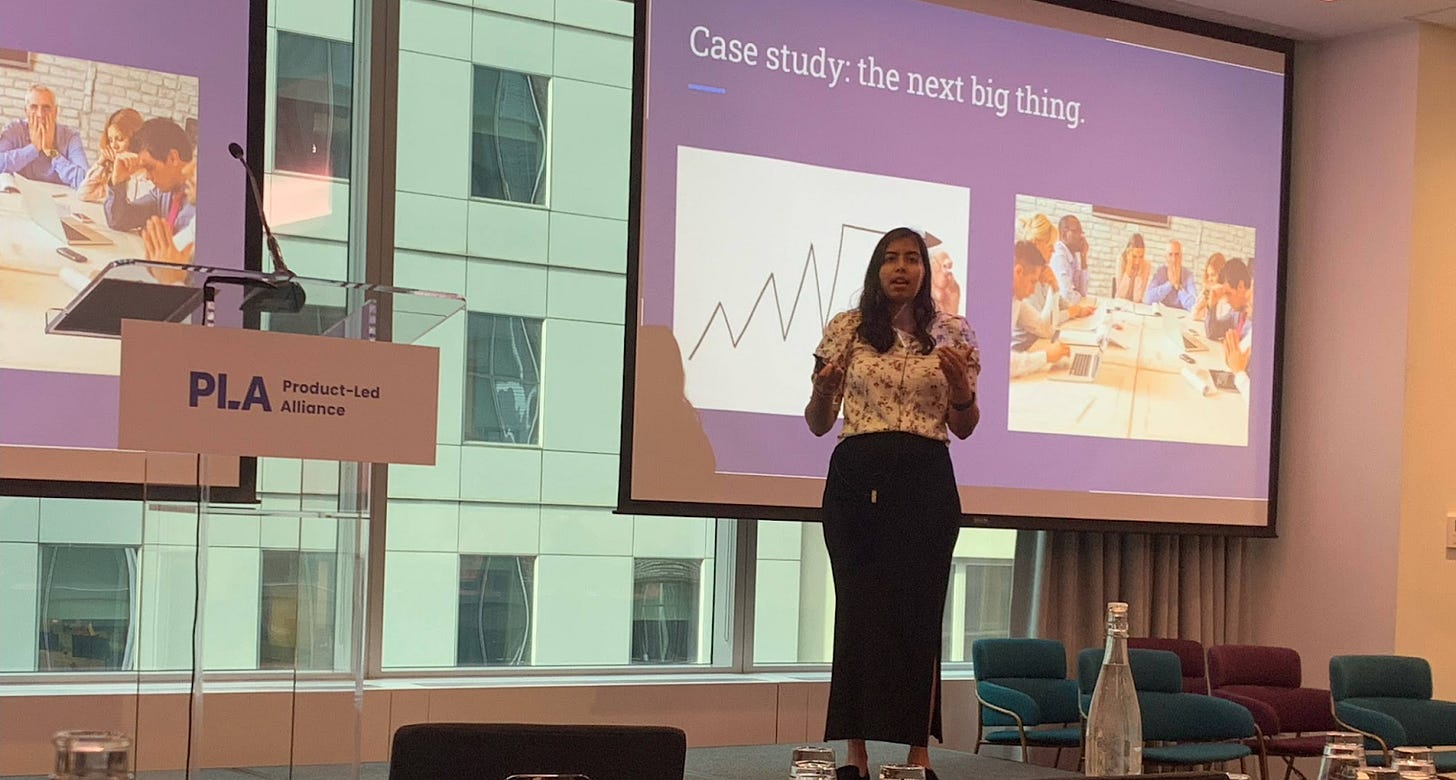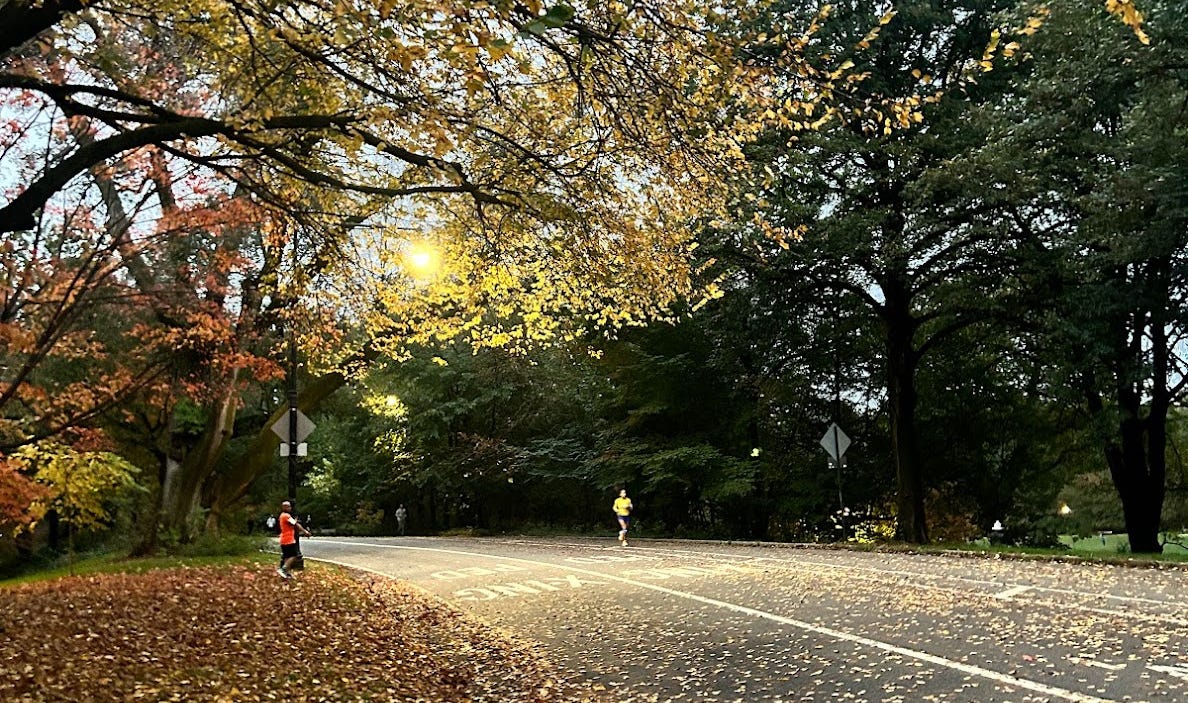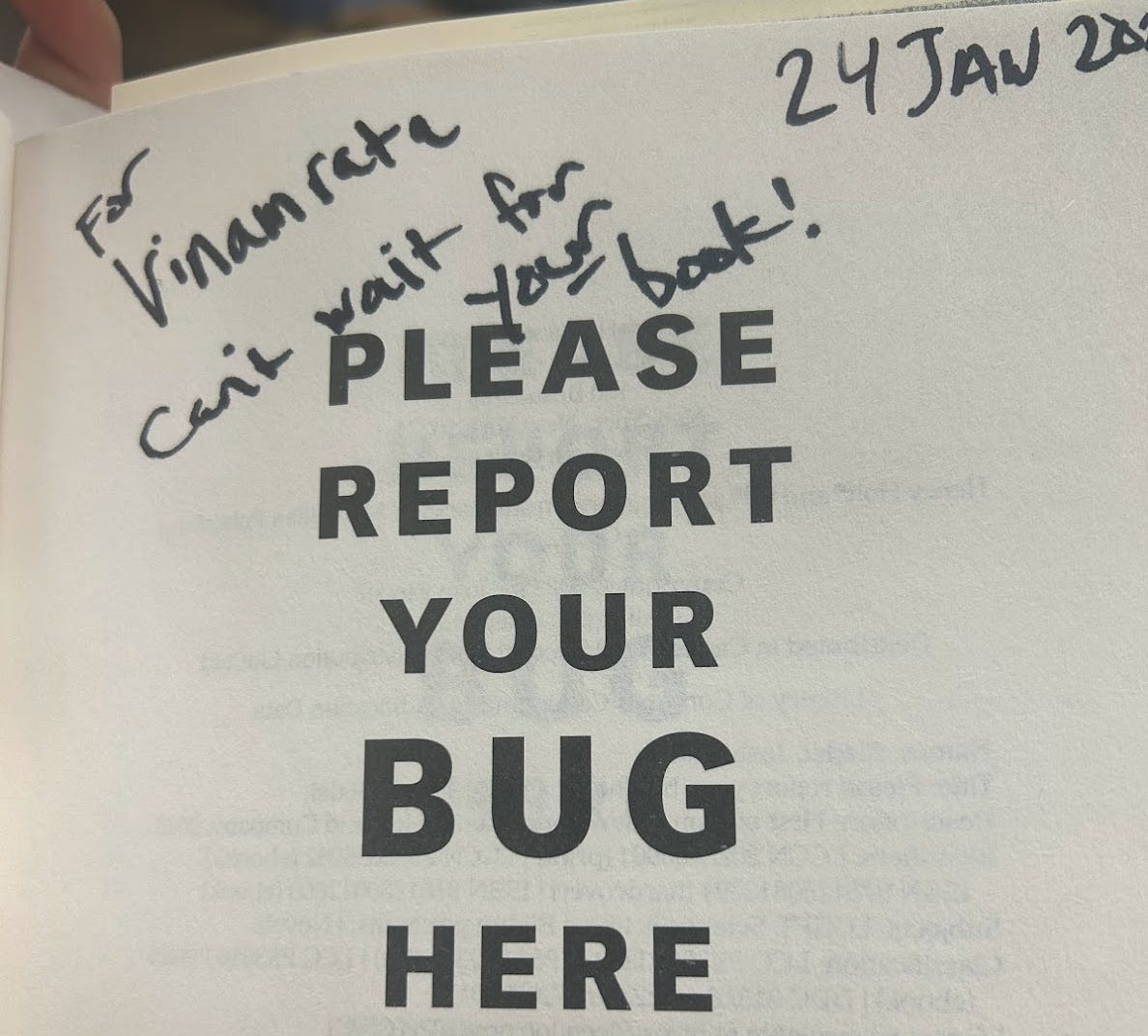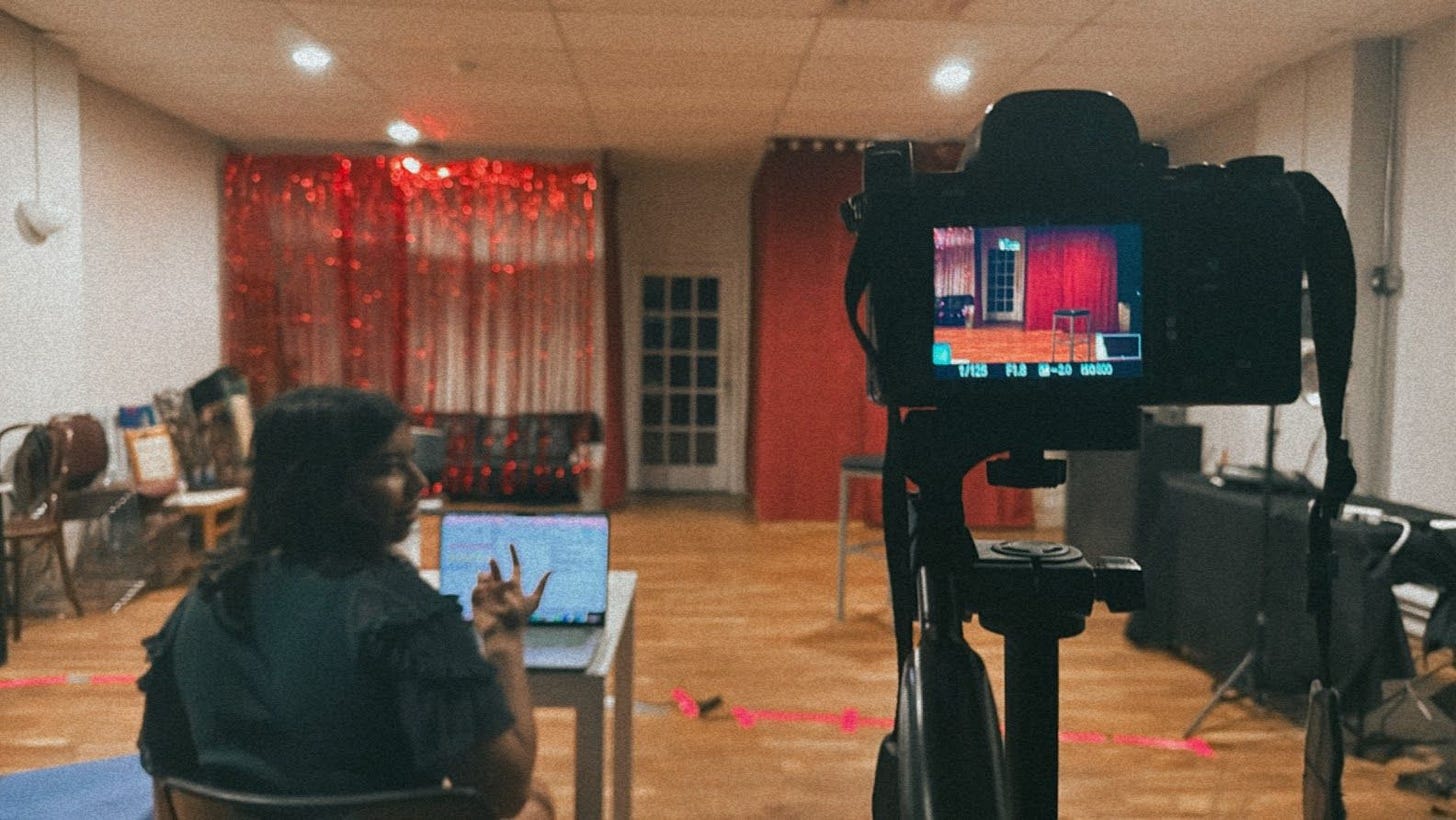How to know the right next step when everything feels uncertain
A guest post by Vinamrata Singal, on navigating the journey from quitting her PM job to entering filmmaking
Today, we have a guest post from Vinamrata Singal, author of The Next Chapter, and former tech PM turned writer and director. After meeting Vinamrata over a decade ago, I’ve loved following her substack and appreciate that we both write about all aspects of our life and careers.
She’s making her first short film, After Moonrise, and it’s been such a joy seeing her bring this film to life. In this piece, Vinamrata will explain the twists and turns she took during her sabbatical that brought her to filmmaking, and how you can also create a similar space for yourself.
As a recovering overachiever, a sabbatical is one of the hardest things you’ll do because of the inherent uncertainty required to weather the storm.
The ideas of “success” and “knowing where you’re going” are inextricably linked. There’s some truth to this: if you are working towards a concrete, well-defined direction, you’re more likely to get there. But knowing what you want isn’t as simple as a journaling exercise or reflection; it’s the cumulative effort of micro-moments of realizations that eventually lead you to a bigger answer. And reaching these realizations requires space to try things without knowing where you’re going—weathering uncertainty.
But how exactly does one go about that?
Backstory: Why I took a sabbatical from corporate tech
When I first entered tech, I had a clear vision of what I wanted. Over a decade, I achieved a lot of it, and the remaining (like becoming a venture-backed startup founder), I didn’t want anymore. I felt like I was becoming a different person than who I was when I first started in the industry, and I needed space to figure it out.
There were so many signs of needing that space, but the most obvious was how every day felt like such a…struggle. During work, I felt like going through the same motions. Victories felt more like a relief than a signal that I had achieved something meaningful. I was turning down career advancement opportunities — because I didn’t understand the point. As a former overachiever, this was a clear red flag.
I was also planning my wedding around this time, which made me think a lot about starting a family. While I knew I had time, I also didn’t have… that much time. I figured this would be the few precious years when I could truly focus on myself, which gave me a greater sense of urgency.
Running lots of experiments
I knew that by taking a sabbatical, I’d have to embrace uncertainty. But what if I could control the uncertainty? That’s why, before quitting, I brainstormed projects and experiments that I wanted to try. It turns out that I wanted to do a lot of things: scale my coaching business, create a YouTube channel, write a novel, read more books, undergo more intense therapy, and pursue screenwriting. Writing it down was an exciting reminder of the road ahead of me (which was very helpful when I was just trying to make it through the workweek).
However, during my sabbatical, things changed quickly. It turns out that I didn’t factor in my learning curve or my general burnout. As a result, the list soon felt daunting and discouraging. There were times when I wanted to give in and just pick a thing just so I had something concrete, but I had to remind myself that success wasn’t about output; it was about having the space to try things and eliminate options. Sometimes, that meant giving up on projects halfway through, like my YouTube channel (we won’t go there). It was a messy, painful, and non-linear process, which was very difficult for my brain to accept.
The biggest thing that helped me stay the course was complementing the exploration with inner work, which, in my case, involved working with an IFS-trained therapist. Through this work, I learned to embrace and understand emotions like sadness, fear, and shame, which were crucial signals in helping me process my exploration.
Looking back, I’m really grateful that I gave myself the space to dream, try, and fail. There are times I wonder if I should have had “less of a plan” and let opportunities emerge rather than methodically checking off each item on my list. But I think it ultimately comes down to individual personality. I knew that I needed a plan and checkpoints to feel comfortable taking this risk, and I’m so glad I did that instead of fighting that need.
Narrowing by letting go
Now that I had a few completed experiments, I had to decide: what did I want to narrow in on?
Most people will tell you, “Just listen to your intuition/feelings.” But the reality is much more complicated, because before you can listen, you have to step away from the “shoulds,” which is far more complex.
Ever since I was a kid, I wanted to become an author. During my sabbatical, I finally wrote a draft of a book, something I’d prepared for by writing countless short stories and attending writing workshops and conferences. However, it turns out that I absolutely detested the process. It felt lonely, isolating, and draining, and despite my best efforts, my experience did not get better.
Looking back, it was difficult for me to accept because before I had even started, I had decided I should like this, even though my reality begged to differ. It was a painful truth to accept, because accepting the truth wasn’t just acknowledging my feelings — it also required letting go of a childhood dream and saying goodbye to a past version of myself.
I’m incredibly grateful to the writers I spoke with during this time, who validated my feelings and held space for me to explore my messy emotions. They gently reminded me (many times) to focus on my present experience and feelings, rather than what I promised myself years ago when I didn’t know any better. When I followed their advice, the truth was clear: I didn’t want to be an author, at least not right now.
Instead, I wanted to write screenplays and make films. Growing up across India, Saudi Arabia, New Zealand, and the US, books and movies were the only safe spaces where I could express myself freely and see others do the same. But my novel-writing experience taught me that I wanted something more collaborative, a way to bring stories to life visually, not just on the page. It’s why I loved product management: I got to use my leadership skills to work with a team to build something together. I didn’t want to lose that. Writing and filmmaking scratched both the itch to tell stories and work with a team to bring them to life.
However, there was also resistance to pursuing this path, especially as a non-film school graduate. I had never worked with actors, nor had I ever held a real filmmaking camera in my life. There would be a lot of new stuff to learn, and I would likely suck at it. That’s where resistance came in, telling me to give up before I’d even started because I have a crippling fear of failure. However, this was helpful information, as it helped me understand that what was giving me pause was the discomfort of doing something new, not because I disliked film or writing. In other words, my resistance was a challenge that I could overcome through getting reps, which is exactly what I did, whether by taking classes, reading books, creating work, and seeking out mentors.
Having those moments to slow down and process, rather than immediately jumping into the next thing, was pivotal to successfully navigating this inflection point. It would have been really easy for me to ignore my dislike for novel writing and dive into the next draft, but I would have ended up burning out.
Taking time to slow down and pause might feel like a “waste of time” in the moment, but in the long run, it saved me a lot of pain by focusing my energy on what matters: filmmaking and screenwriting.
The money thing.
Before I could wholeheartedly explore screenwriting and filmmaking, I needed to figure out how to support myself. A creative career could take years (or realistically, a decade) to really take off, and I didn’t want to put pressure on my art.
Initially, I thought about building a coaching business, given my passion for coaching clients and entrepreneurial mindset. At first, it was awesome. I loved building a business and working for myself. But there was a tradeoff: growing a business requires a ton of effort and weathering uncertainty, which I was already doing in my creative career.
I was burning the midnight oil on both ends and drowning quickly.
I realized that what I needed was a balance of stability and flexibility. Luckily, I had just interviewed for a part-time role at a technical marketing agency, where I would make enough to cover my bills, work with people I liked, and have enough time to write. But taking this job would mean deprioritizing my coaching business and, in the long run, a pay cut.

Despite the tradeoff, I took the job, and I’m so glad I did. Having this stability has been game-changing in establishing a consistent routine and freeing up mental space to work on my filmmaking and writing career. But it requires making adjustments in other areas. I no longer have a glamorous, fancy tech job (in fact, I’m a lowly contractor), and I’m not earning big tech salaries.
Some days, this brings me shame. Instead of fighting it, I accept it as a part of my journey. Pursuing this path isn’t just about doing this thing that I love — it’s also embracing a new version of myself and letting go of a former identity, which is painful. The pain is a sign of the shift, not a problem that needs to be solved.
Lessons for anyone considering a major life change
If there’s one thing I’ve learned through this process, it’s that accepting uncertainty requires us to cultivate a more honest and authentic relationship with ourselves.
Learning to accept the uncomfortable emotions that emerged was key in this journey. If you’re going through a significant life change or considering embarking on a sabbatical or other transition, here are some questions that can help you work through emotions that come up:
What emotions come up when you imagine jumping into the unknown?
What’s prompting these emotions to come up?
What do these emotions need from you? What’s prompting this need from them? What does this situation remind them of from their past?
How do you feel about these emotions? What’s shaping your perspective?
How might you find a way to meet the needs of these emotions?
There’s never a right answer, just the answer that feels right in that moment.
To follow along with Vinamrata’s journey, subscribe to The Next Chapter!
Note from Jean: I would love to highlight more unconventional paths in and out of tech, either through guest posts or interviews. If you have a story that you want to share, reach out to me!









Awesome read
Proud of you
Your hard work and sincerity will take you to places . Just remain honest to the craft